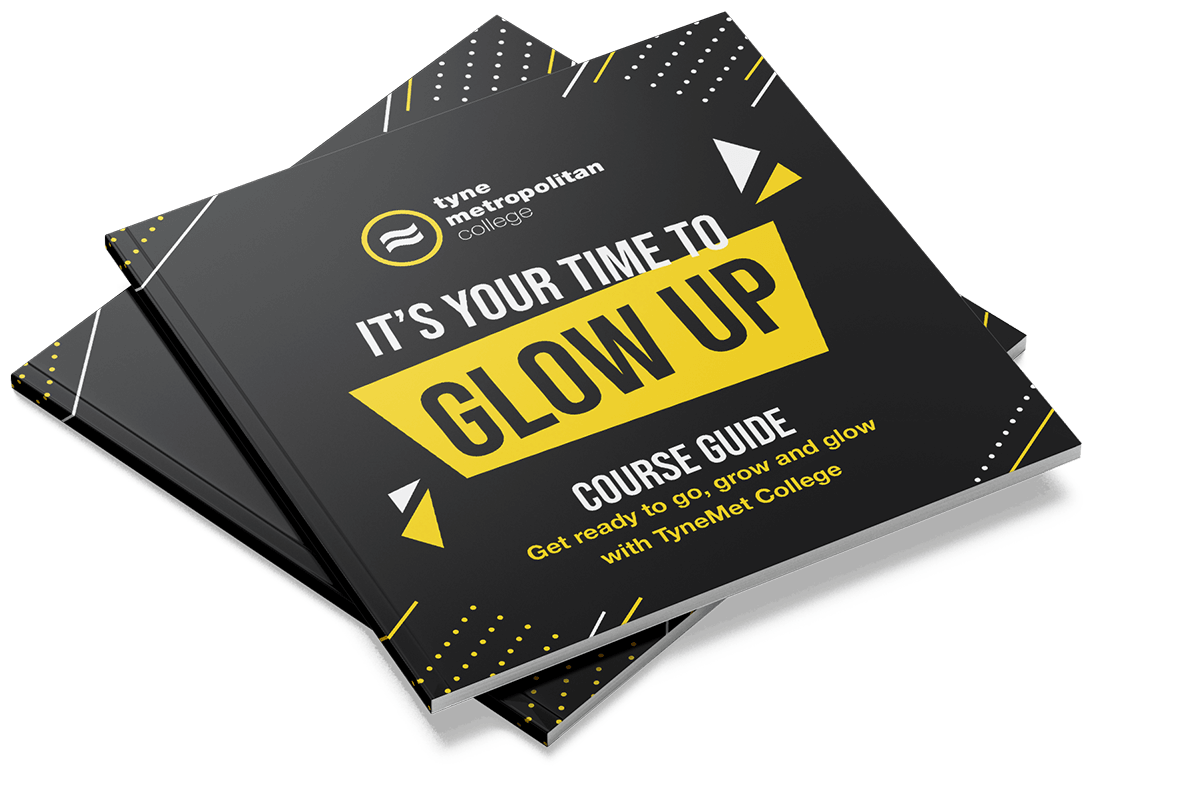FIND YOUR
COURSE
Search for a course...
ABOUT OUR COURSES
Whether you’re looking into Counselling, Hairdressing, Floristry or Business courses, take the next step with the highest rated college in Tyneside.
Check out our huge range of vocational courses to get you on to your career path, where you’ll not only gain a qualification, but the confidence and skills to find your feet as an adult.

Filter courses by...
SCHOOL LEAVER COURSE FAQs
Practical, hands-on, work related. It’s as simple as that. All our vocational courses have been specifically designed to guarantee you have the work-ready expertise employers are looking for.
From engineering to sport, and from catering to hair and beauty, we offer a huge range of vocational courses.
Each of our vocational courses will have slightly different entry requirements, to help us make sure that you’re on the right programme for you. However, in most cases, we look for a minimum of 4 GCSEs at Grade 4 – 9.
Whatever option you choose to take after GCSE, it’s likely that there will be a few changes in the way you study.
A key difference will be the increased freedom and independence, as you will have fewer lessons across the week. It’s also the case that you’ll have smaller class sizes, which means that you can build fantastic relationships with your tutors and classmates. Finally, studying a vocational course will be much more hands-on than the learning you are used to for GCSE. If you’re someone that loves practical-based learning, a vocational course might be for you!
For each course, you will complete a variety of units which are assessed through projects, coursework, exams, and moderated assignments. For each unit you will receive either a Pass, Merit, or a Distinction.
There are a number of differences between vocational study and A-levels, including the teaching style, assessment methods, and amount of practical experience.
Essentially, if you study A-levels, you will be taught in a similar style to your lessons at GCSE, whereas with vocational study, you will combine any theory with practical work so you can apply what you learn. Additionally, with A-levels, you are assessed through exams at the end of your final year. If you know that exam pressure isn’t for you, a vocational course may be the answer as they are assessed throughout the year, which spreads out the work that contributes to make your final grade.
There are number of different levels you can study at, and these vary in length. A vocational course at Level 2 course will last for one year but the extended diploma at level 3 will last for two.
Following successful completion of a vocational qualification, you will have a number of different opportunities at your fingertips.
Many of our students go on to further study (including university), apprenticeships, or go straight out into employment. Whichever option you choose, we will be there to support you with expert advice and guidance.
95% of universities and colleges in the UK accept vocational qualifications, including competitive students in the Russell Group.
The time management and self-organisation skills you will develop in a vocational course will be key to your success at university and vocational students achieving good grades are just as sought after as A-level students.
We offer the following levels at vocational study:
- Entry Level or Foundation Level — Develops communication and study skills for students who require extra help to progress
- Level 1 — Gets you started on the fundamental basics, builds your confidence and prepares you for the next step. Equivalent to grade 1-3 at GCSE
- Level 2 — Equivalent to grade 4-9 at GCSE
- Level 3 — A Level standard and advanced apprenticeships
- Level 4 — HNC and higher level apprenticeships
- Level 5 — HND, higher level apprenticeships and Foundation Degree
- Level 6 — Honours Degree
Anything above Level 3 is Higher Education
Level 2
Certificate = 1 GCSE (9-5)
Extended Certificate = 2 GCSEs (9-5)
Diploma = 3 GCSEs (9-5)
We offer a wide range of A Levels through our Queen Alexandra Sixth Form College. You can view the full range of A Levels as well as Business and Art courses via the website here.
Get in touch
Our team is always ready to help. So if you have questions on courses, your career, or anything else, complete this contact form and we’ll be in touch.

